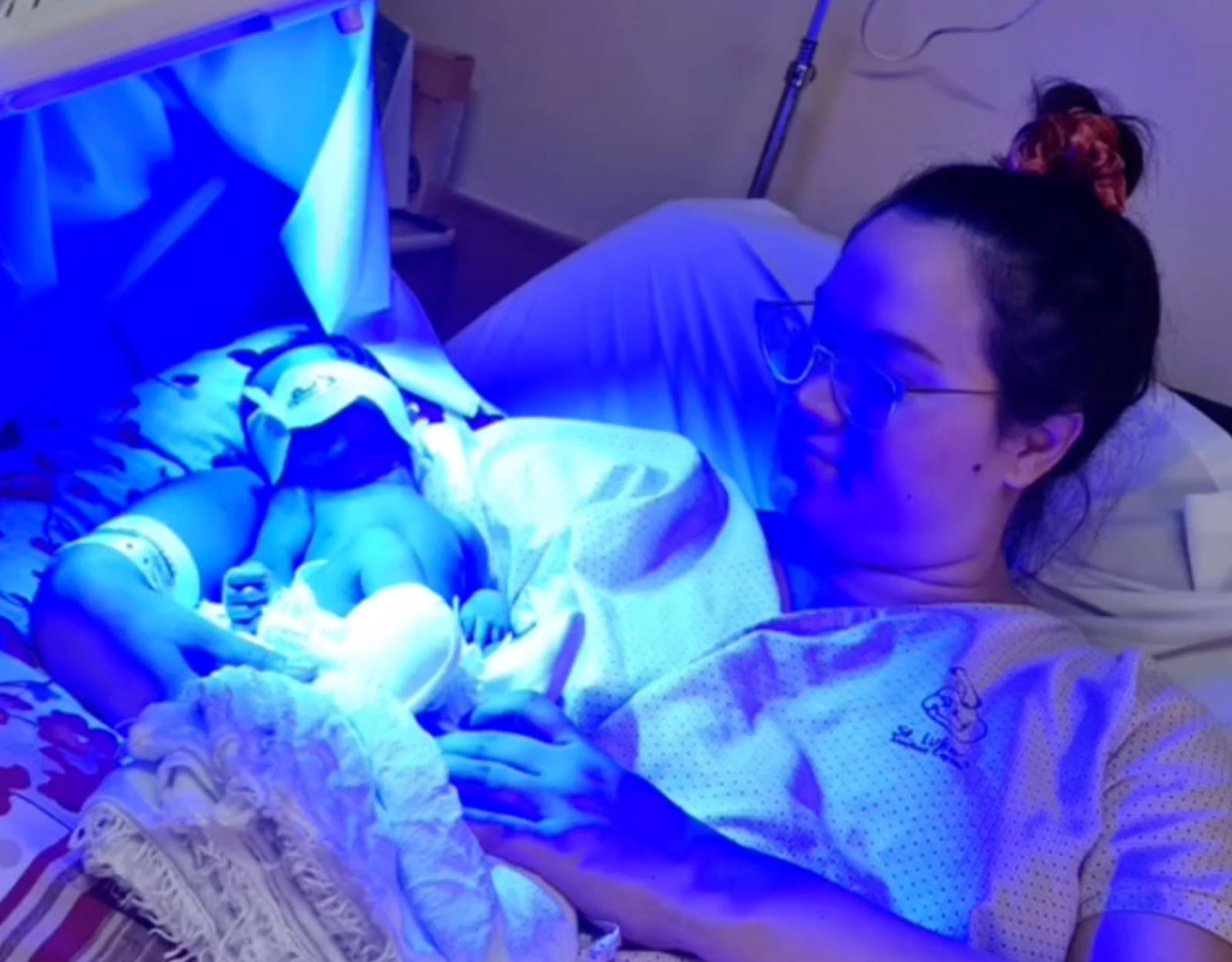Melissa Ricks Recalls the Eventful Birth of Her Second Baby Girl
Celebrity mom Melissa Ricks opens up about giving birth to her second baby girl and recounting the traumatic moment.
Childbirth can be traumatic when the pain is intense and things escalate so quickly. But it becomes even more traumatic when our newborns suffer complications. Celebrity mom Melissa Ricks opened up about it on Instagram, revealing that her newborn baby girl, Mika, suffered some complications including “heightened bilirubin levels.”
“We already had our bags packed and ready to go when our pedia came in and said we had to stay. It broke my heart and I was so scared for Mika. I didn’t know anything about this kind of condition, her Bilirubin levels were extremely high and may cause permanent damage,” she recalls.

What caused the trauma?
Bilirubin is a special compound that breaks down dead red blood cells and bile. A fluid in the liver that breaks down food contains the same substance. But when there’s too much bilirubin, that usually means the liver is malfunctioning or failing. Being yellow, high levels of bilirubin then trigger jaundice — a symptom known for turning the whites of our eyes or the wholes of our body bright yellow. Unfortunately, bilirubin is not one of those compounds that can stay in our bodies for long. Kidneys suffer damage when exposed to high levels of bilirubin.
However, Melissa Ricks reveals that it was their “differing blood types” that led to her baby, Mika’s encounter with jaundice and the high bilirubin. “I thought all we needed was a little sun, which is normal for newborns, but in Mika’s case, since me and her father have different blood types and Mika got her dad’s blood type (ganun pala yun) it caused her bilirubin levels to be dangerously high.”
But doesn’t a pregnant woman share blood with her baby? They do, but there are rare occurrences where they become incompatible. Stanford’s Medicine for Children’s Health and the organization of Children’s Wisconsin call this event “Rh Incompatibility” wherein the mother or the baby has the Rhesus Factor — the protein that classifies us as either being a positive or a negative blood type.
For example, when a mom is B- but her baby is B+, the mom’s body will see the + Rhesus Factor of her baby’s blood as a “foreign substance.” Her immune system will then attack it, leading to complications such as Fetal Anemia and Fetal Hydrops (build up of fluid inside the baby). Some damage may even become permanent if not addressed immediately (Patel, Desai, and Patel, 2017; Tyndall, Cuzzilla, and Kane, 2020).
Although a mom-to-be’s immune system adjusts accordingly, there are rare cases when it needs external intervention to keep both the baby and mom healthy.

Blood types are important!
We always laugh off the dating question about asking about one’s blood type. But there is a biological reason we do. It’s to avoid complications like these. Unfortunately, genetics can be quite random, which is why it’s best to always consult with your OB-Gyne regarding issues like these. That way, we can respond accordingly should we and our baby have that problem.
The good news is Melissa Ricks happily reports that she and her baby are doing fine. “It was so hard and lots of tears from this momma, but we made it through. We are stronger than we think, Mommas.”
References
Cohen, B. H. (1970). ABO and Rh incompatibility. I. Fetal and neonatal mortality aith ABO and Rh incompatibility. Some new interpretations. American Journal of Human Genetics, 22(4), 412.
Costumbrado, J., Mansour, T., & Ghassemzadeh, S. (2021). Rh incompatibility. In StatPearls [Internet]. StatPearls Publishing.
Patel, A. S., Desai, D. A., & Patel, A. R. (2017). Association of ABO and Rh incompatibility with neonatal hyperbilirubinaemia. International Journal of Reproduction, Contraception, Obstetrics and Gynecology, 6(4), 1368-75.
Tyndall, C., Cuzzilla, R., & Kane, S. C. (2020). The rhesus incompatible pregnancy and its consequences for affected fetuses and neonates. Transfusion and Apheresis Science, 59(5), 102948.
More about pregnancy and women’s health?
Why a Healthy Thyroid Can Help in Pregnancy
Jess Wilson Announced Her Pregnancy with a Thoughtful Message
FACT: Pregnancy and Breastfeeding Can Affect a Mom’s Eyesight!









